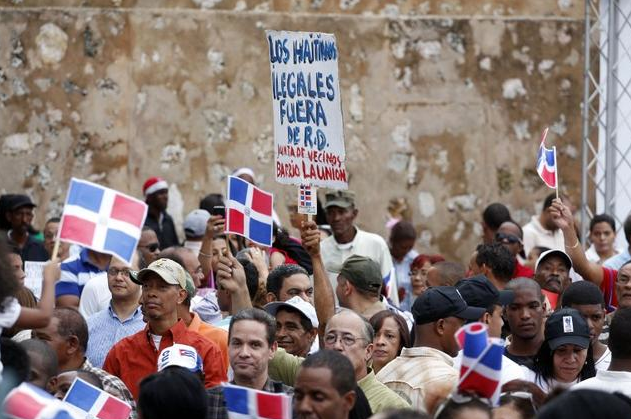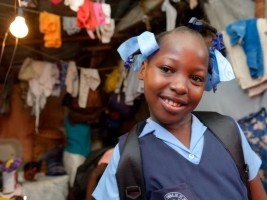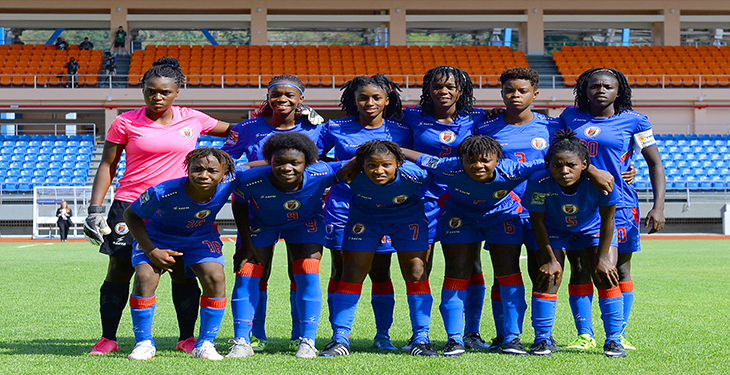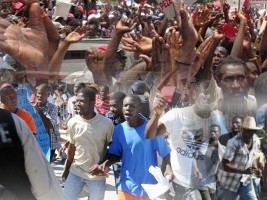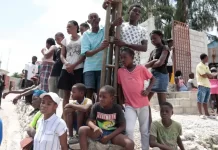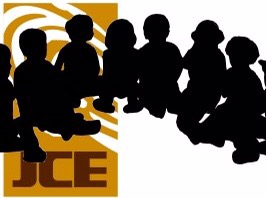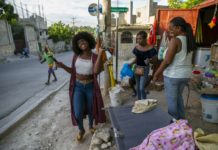The following editorial appeared in the Miami Herald on Friday, May 30:
The plight of Haitians who sail hundreds of miles to try to enter South Florida is well-known.
Unlike Cuban refugees who have the protection of the Adjustment Act of 1966 or the wet-foot-dry-foot policy, Haitians who try to make it to the United States in pursuit of a better life are often turned back or deported. It’s been as enduring a policy as it has been unfair.
On the island of Hispaniola, which Creole-speaking Haiti shares with the Spanish-speaking Dominican Republic, the question of inequity is also in the forefront of an ugly immigration feud. South Florida has a dog in this fight because of the high number of Haitians and Dominicans who call this region home.
It began in September when the Dominican Republic’s highest judicial body issued a shocking ruling denying citizenship to generations of people born to Haitian parents living in the country. Those affected, a number placed in the tens of thousands, were in jeopardy of being left in citizenship limbo.
In effect, the Dominican Republic had set a path for creating a large stateless population within its borders. The Constitutional Court’s decree, which could not be appealed, would likely worsen already acrimonious relations between the Dominican Republic and Haiti.
The ruling reached back to cover people born since 1929 – a category that overwhelmingly included Haitians who arrived in the Dominican Republic to work on farms, settled and then had children there.
Now, an obvious injustice is slowly being corrected, thanks to D.R. President Danilo Medina and members of two legislative chambers who had worked to carve out a solution, one that, it is hoped, will help to improve the troubled relationship between the small, neighboring countries. Commend President Medina for introducing long-overdue fairness to the process.
Advocacy groups did speak out, charging the high court’s ruling was based on bigotry against predominantly black Haitians by largely racially mixed Dominicans, who have long feared being dragged down economically by their poor neighbors’ problems.
International eyebrows were raised. In March, Vice President Joe Biden was set to visit the Dominican Republic and urge Medina to find a resolution. Biden canceled his trip because of the crisis in Ukraine.
Under the new, corrective legislation, the children of undocumented immigrants born in the Dominican Republic can register to acquire citizenship; in addition, Haitians living in the country can apply to enter a path for legal residency, provided they have no criminal record.
“This is progress, but the devil is in the details,” University of Miami professor David Abraham, an immigration expert, told the Miami Herald Editorial Board. The Dominican Republic gets to decide who meets citizenship eligibility. He added the U.S.’ interest in the issue is concern that Haitians unwelcome in the Dominican Republic will head to Florida.
Nations have the right to decide who deserves citizenship, but the Dominican Republic could not absolve itself of moral responsibility by merely declaring that its constitution did not automatically give citizenship to those born there.
For decades, Dominicans relied on that Haitian labor on sugarcane plantations to make their land profitable. To suddenly turn those workers and their descendants away was unjust, not to mention hypocritical.

The following editorial appeared in the Miami Herald on Friday, May 30:
The plight of Haitians who sail hundreds of miles to try to enter South Florida is well-known.
Unlike Cuban refugees who have the protection of the Adjustment Act of 1966 or the wet-foot-dry-foot policy, Haitians who try to make it to the United States in pursuit of a better life are often turned back or deported. It’s been as enduring a policy as it has been unfair.
On the island of Hispaniola, which Creole-speaking Haiti shares with the Spanish-speaking Dominican Republic, the question of inequity is also in the forefront of an ugly immigration feud. South Florida has a dog in this fight because of the high number of Haitians and Dominicans who call this region home.
It began in September when the Dominican Republic’s highest judicial body issued a shocking ruling denying citizenship to generations of people born to Haitian parents living in the country. Those affected, a number placed in the tens of thousands, were in jeopardy of being left in citizenship limbo.
In effect, the Dominican Republic had set a path for creating a large stateless population within its borders. The Constitutional Court’s decree, which could not be appealed, would likely worsen already acrimonious relations between the Dominican Republic and Haiti.
The ruling reached back to cover people born since 1929 – a category that overwhelmingly included Haitians who arrived in the Dominican Republic to work on farms, settled and then had children there.
Now, an obvious injustice is slowly being corrected, thanks to D.R. President Danilo Medina and members of two legislative chambers who had worked to carve out a solution, one that, it is hoped, will help to improve the troubled relationship between the small, neighboring countries. Commend President Medina for introducing long-overdue fairness to the process.
Advocacy groups did speak out, charging the high court’s ruling was based on bigotry against predominantly black Haitians by largely racially mixed Dominicans, who have long feared being dragged down economically by their poor neighbors’ problems.
International eyebrows were raised. In March, Vice President Joe Biden was set to visit the Dominican Republic and urge Medina to find a resolution. Biden canceled his trip because of the crisis in Ukraine.
Under the new, corrective legislation, the children of undocumented immigrants born in the Dominican Republic can register to acquire citizenship; in addition, Haitians living in the country can apply to enter a path for legal residency, provided they have no criminal record.
“This is progress, but the devil is in the details,” University of Miami professor David Abraham, an immigration expert, told the Miami Herald Editorial Board. The Dominican Republic gets to decide who meets citizenship eligibility. He added the U.S.’ interest in the issue is concern that Haitians unwelcome in the Dominican Republic will head to Florida.
Nations have the right to decide who deserves citizenship, but the Dominican Republic could not absolve itself of moral responsibility by merely declaring that its constitution did not automatically give citizenship to those born there.
For decades, Dominicans relied on that Haitian labor on sugarcane plantations to make their land profitable. To suddenly turn those workers and their descendants away was unjust, not to mention hypocritical.



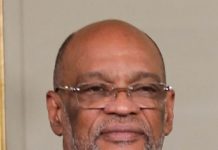





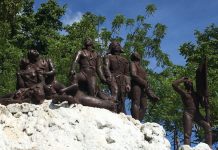



















![Phyllisia Ross – KONSA [Official Music Video]](https://haitiville.com/wp-content/uploads/2014/08/phyliisia.jpg)
